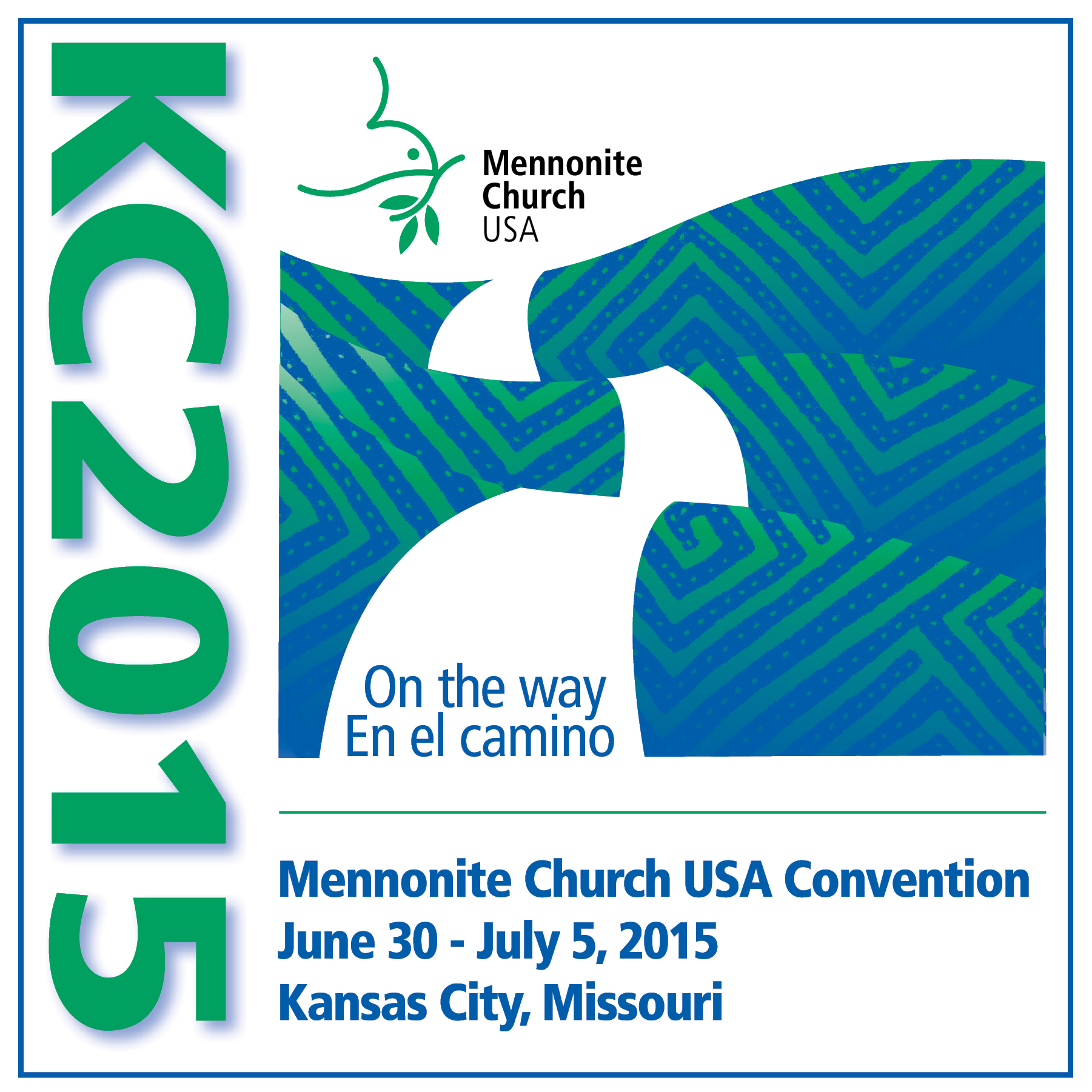 This is the last of four Bible studies by different authors on the key Scripture text for Mennonite Church USA’s next biennial convention, to be held June 30–July 5, 2015, in Kansas City, Mo. “On the way/En el camino” is the convention theme, and the Scripture text is Luke 24.
This is the last of four Bible studies by different authors on the key Scripture text for Mennonite Church USA’s next biennial convention, to be held June 30–July 5, 2015, in Kansas City, Mo. “On the way/En el camino” is the convention theme, and the Scripture text is Luke 24.
By Wilmer Villacorta
Words capture the human experience so descriptively. Disappointment, disillusionment, disenchantment and regret are synonyms that describe our journeys on the road of life when things get unbearably tough. The Scriptures depict countless scenarios of these synonyms in action, affecting the lives of men and women alike.
The Emmaus Road story offers us an example of the power of the Risen Christ to transform heart-wrenching despair into heart-filled hope in the hearts of two disciples much like us.
The road of disappointment

Wilmer Villacorta lives in Colorado Springs, Colo., where he serves as an associate pastor at El Centro Church. (Photo provided)
In their distress, Cleopas and his unnamed friend walked a dusty road following a hard day of executions on the outskirts of Jerusalem. Engulfed in deep conversation about their thoughts and feelings, they diffused each other’s disappointment. Maybe they needed to go back home and forget the terrible things they had witnessed. The one they had believed to be the liberator of Israel had died, and with him all his promises. Each of them lamented the loss of their friend as well as of their dreams of liberty for their land, which had vanished in an instant. They didn’t know what to feel anymore; only grief befriended them.
Henri Nouwen suggests that “to grieve is to allow our losses to tear apart feelings of security and safety and lead us to the painful truth of our brokenness” (With Burning Hearts, Orbis Books, 2007, p. 30). This truth reveals that Cleopas and his friend needed to surrender their dream of being set free from the Roman oppressors. While grieving melts away one’s right to be a winner, in losing and mourning a new hope emerges, instilling joy, courage and a sense of mission.
Now, this account is exclusive to Luke’s Gospel. He collected this scenario from an eyewitness or through sources who heard about it. Keep in mind that this Gospel circulated among the first-century Christians for almost 50 years after the resurrection event. So all we know is that these two disciples couldn’t recognize Jesus because their discussion and distress impaired their perception.
Lesser disciples?
This is one of the longest post-resurrection moments of Jesus interacting with the “lesser” disciples (as a few have coined them). As the “not so well known” disciples, in some ways Cleopas and his friend represent us in this story. They speak to our hearts as well as to many generations before us. Their story portrays our human struggle with doubt and fear—even for those who have tasted the Lord’s grace. But how could this be?
Body language
The account goes: “Jesus himself came up and walked along with them; 16 but they were kept from recognizing him. 17 He asked them, ‘What are you discussing together as you walk along?’ They stood still, their faces downcast” (Luke 24:16b-17, NASB).
After the question from Jesus comes a description of the disciples’ body language. If we could only imagine their countenances, perhaps we would see them slouching and depressed in dire sadness and disappointment. Maybe they hoped that things could have ended on a more victorious note, but in reality there was only a deep sense of hopelessness. Perhaps they just wanted to go home and forget the entire experience with Jesus the Nazarene. Besides, what good thing could have come out of Nazareth, anyway? It seemed as though this statement was true after all!
What do you feel in the midst of disappointment? Does your body language reflect what is troubling you? Walking on the road of loss and grief is filled with emotions and heartache. Some of us are good at disguising it; some of us allow others to see it in our countenances.
Burning words
Jesus, pretending to be unaware, asked, “What things?” (24:19, NIV). Then the disciples began describing the reasons for their disillusionment—the terrible events of the recent days.
After Jesus heard the two friends’ lament, he shared truths they had probably heard many times from the Lord. From Moses and the Prophets, every passage confirmed what had taken place. Furthermore, the stranger asked a rhetorical question: “Did not the Messiah have to suffer these things and then enter his glory?” (24:26, NIV).
Cleopas and his companion seemed to like what they heard from the stranger. To them he made sense, although they didn’t recognize who he actually was. They perceived glimpses of hope from what he shared with them. When they reached their destination, the stranger intended to continue on his way, but Cleopas and his friend persuaded him to stay with them. It was dark already and unsafe to be on the road.
Newness of hope
Something new began to rise in the disciples’ hearts. The stranger’s words had soothed their distressed hearts. They wanted to hear more. Next, the intensity of their disillusionment lifted. They shared a meal with the stranger, listening attentively. Then he took, blessed and broke bread, and disappeared.
Would they feel disillusioned again? No. The eyes of their hearts had sensed something different. The disciples recalled the feelings of joy and hope that had caused their hearts to burn within them as the stranger had opened the Scriptures to them.
From the disciples’ initial disappointment had come fear. Fear had led them to return home in despair. But unknown to them, the Lord met them “on the road.” He listened to them and spoke words that shifted their thoughts and feelings. A revelation came, neither as a loud voice from heaven nor as an angelic visitation but through the breaking of bread. The very act of taking, blessing, breaking and giving the bread caused their heart of hearts to change.
From fear, courage comes forth; from disappointment, hope arises; from shortsightedness, a great vision of the Risen Christ emerges. As it has been throughout the ages, a movement deep in the human heart becomes a reality for us today. The transformative power of hope overcomes the darkest nights in which we live. It is “on the road” of life that God comes alongside us and embraces us with the Living Word, thus imparting to us a newness of indescribable hope.
###
—Wilmer Villacorta lives in Colorado Springs, Colo., where he serves as an associate pastor at El Centro Church. He is also a faculty member in the Master of Arts in Global Leadership program at Fuller Theological Seminary, Pasadena, Calif.
Images available:
Wilmer Villacorta (Photo provided)
KC2015 logo

